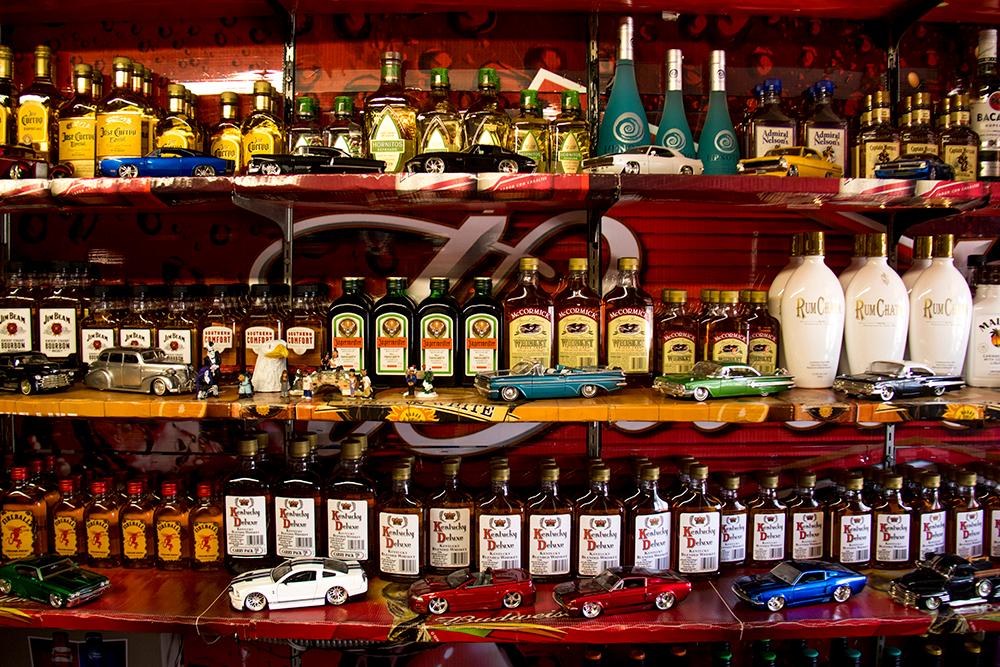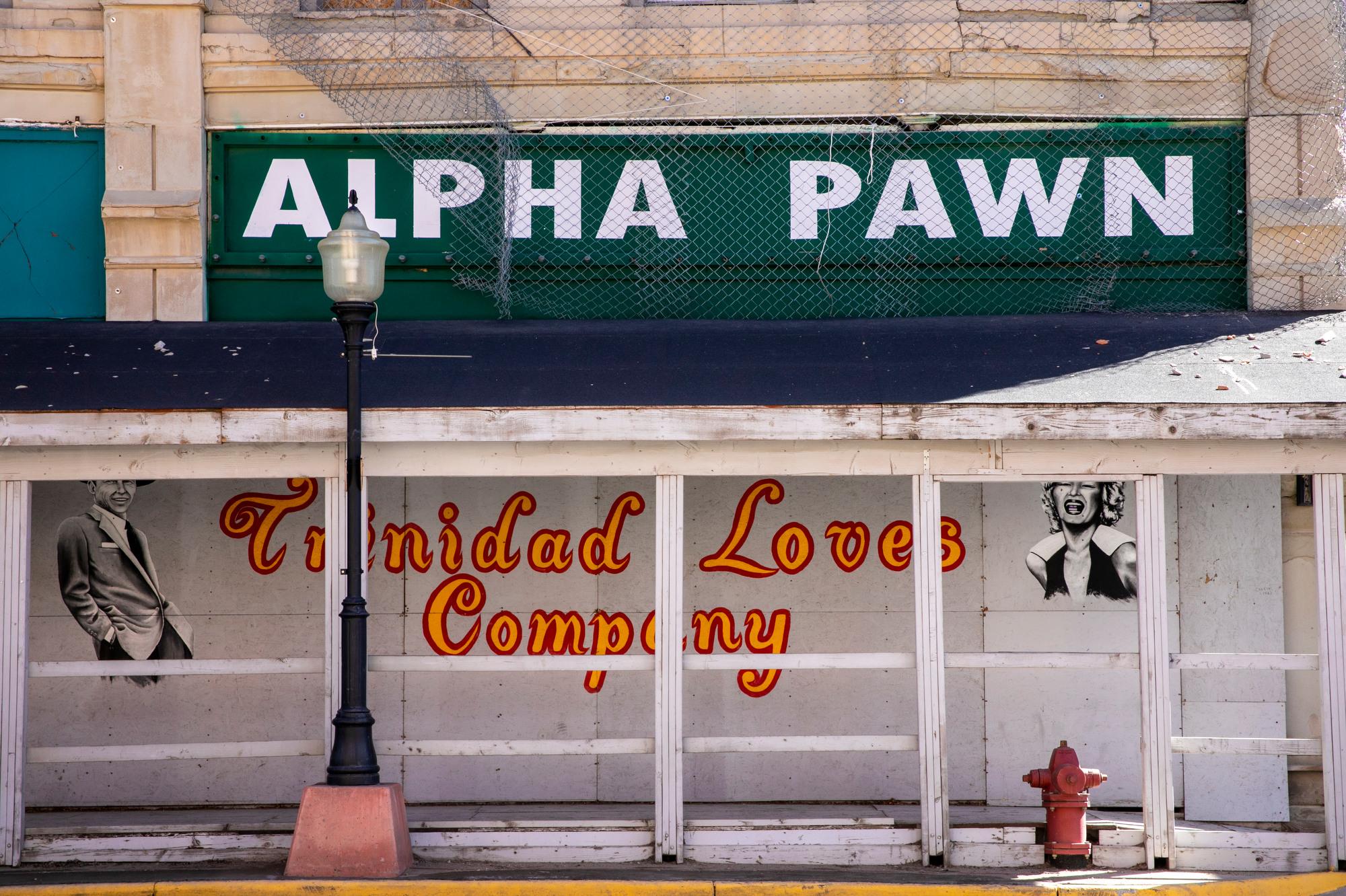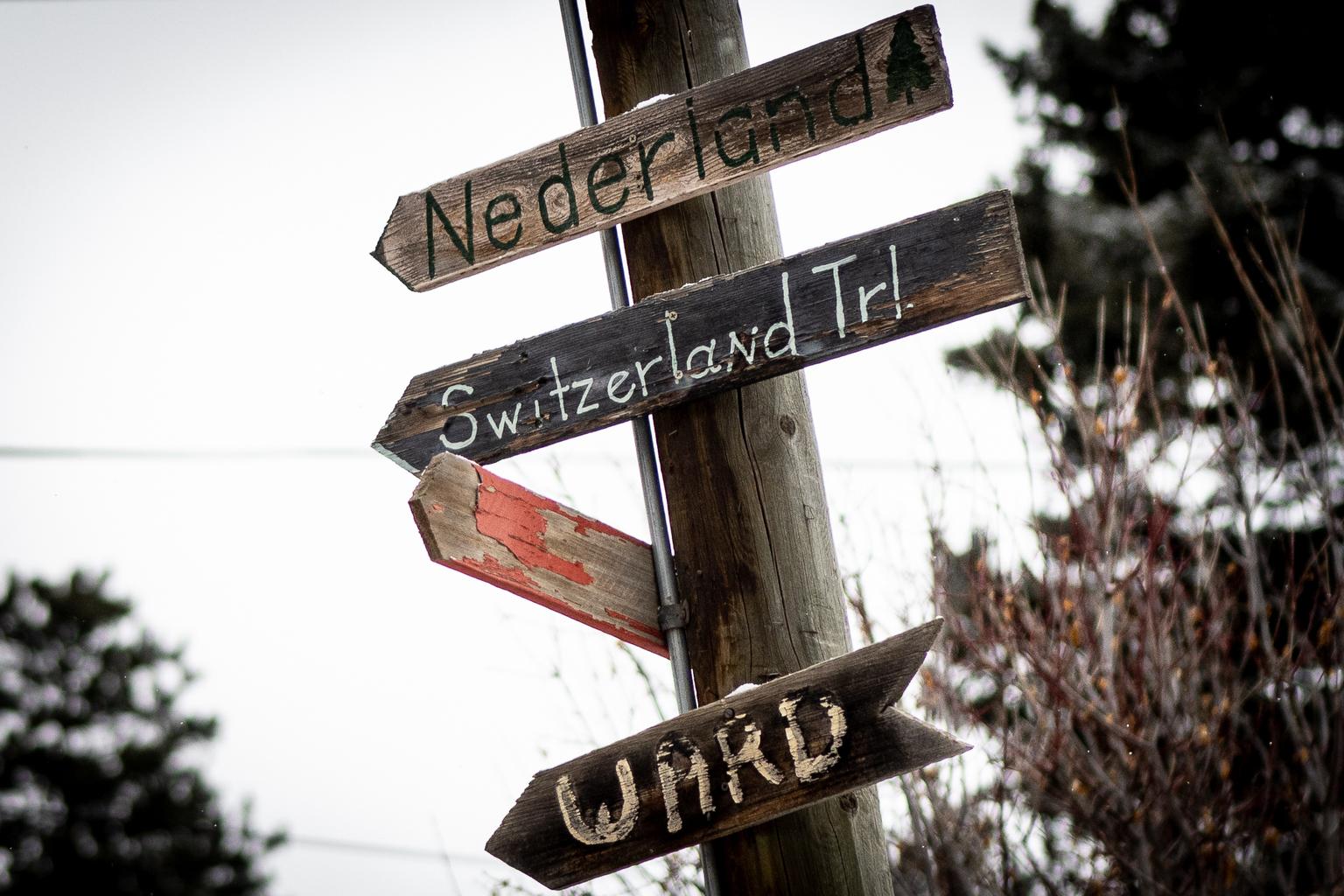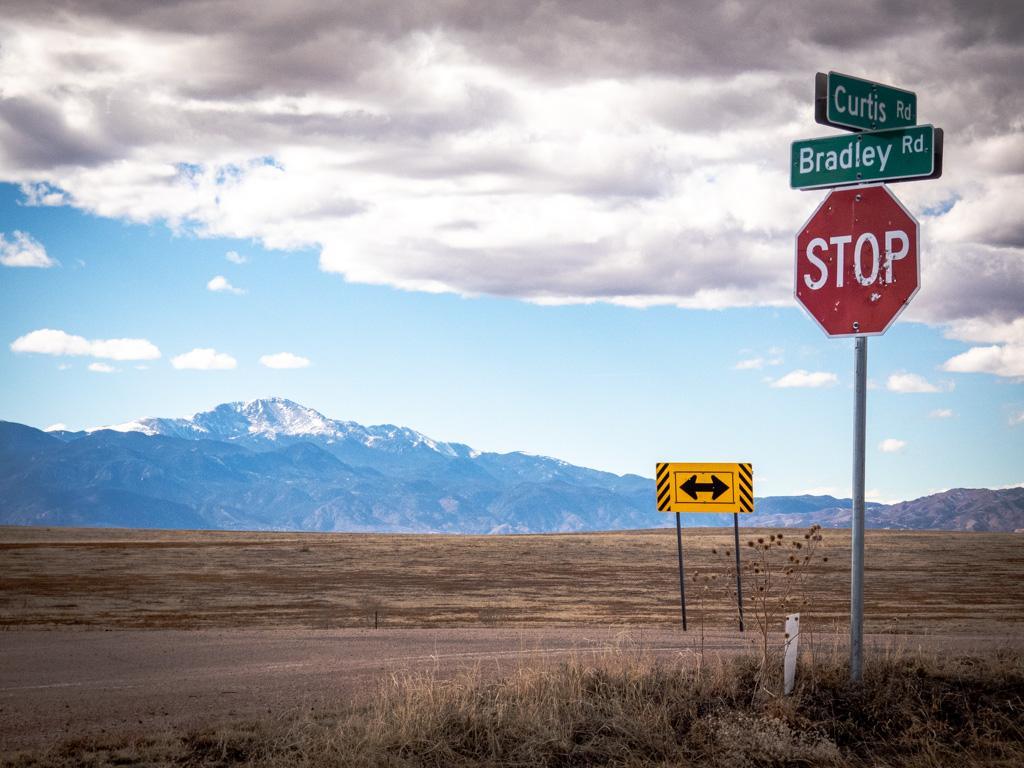
A special election in June will decide the fate of a 1,900-acre annexation in Colorado Springs approved by city council earlier this year. The so-called Karman Line development could result in a planned community of about 6,500 homes near Schriever Space Force Base on the city’s southeast side.
Petitioners opposed to the project gathered enough signatures to force council to either repeal the approval or send it to the citizens to decide as a ballot issue.
Council voted 6 to 3 on Tuesday to affirm its approval of the annexation with Councillors Dave Donelson, Nancy Henjum and Lynette Crow-Iverson opposed. The affirmation prompted two more actions to approve the ballot language and date for the election and approve a plan for the election. Those resolutions passed 8 to 1 with Councillor Brian Risley casting no votes with no explanation.
The city clerk estimates the cost of the special election at about $500,000, but that doesn’t include staff time and some other expenses.
Although he’s uncomfortable with that, Councillor Mike O’Malley said it's worth it.
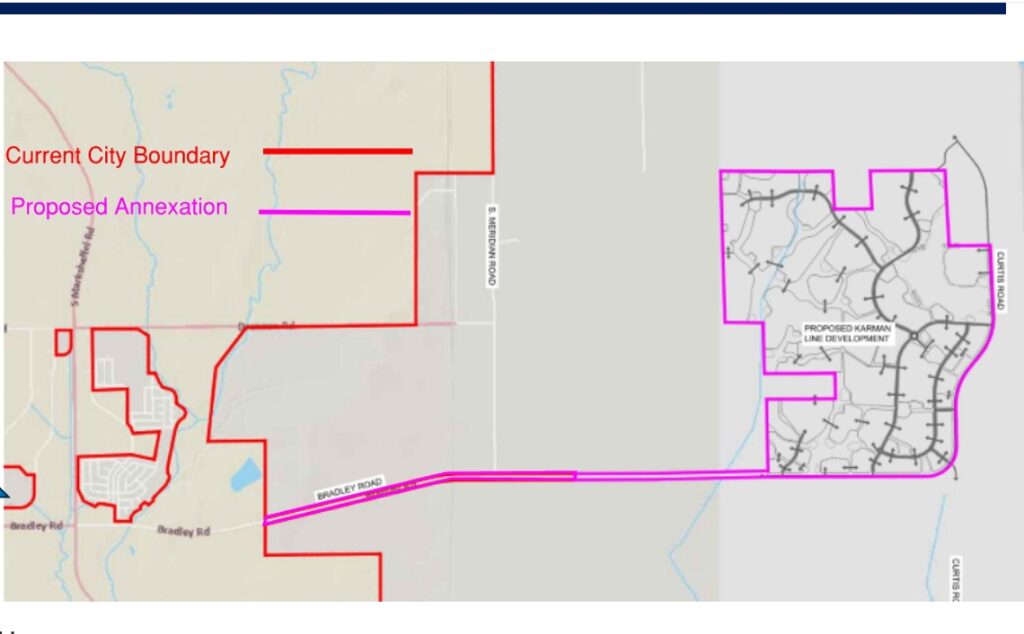
"I think that the voters are going to be saying whether or not they want to annex property into the city of Colorado Springs and for me, I think it's worth the $600,000 to hear that loud and clear and for them to tell the city of Colorado Springs exactly what they want,” he said.
Donelson thanked and congratulated the citizens who worked on the petition. “It would've been easy to give up and go home and grumble and just give up and console yourselves and watch TV, but you didn't do that. You took action,” he said. “When council doesn't reflect what the citizens want, there are ways to correct that.”
He said he also thinks the special election is costly and voters will reject the annexation. “We'll have tossed that money down the drain and the citizens will have made it very clear.”
During discussion and statements prior to the votes, several councillors, without specifying who they were talking about, referred to allegations by Karman Line developer Norris Ranch Joint Development LLC that the petition effort received funding from competing developer Norwood Development Group or one of its affiliates.
The allegation stems from a letter an attorney representing Norris sent last month to the 4th Judicial District Attorney. While council sent the issue to a special election today, Norris’ attorney filed a campaign finance complaint with the Secretary of State's office, alleging the petition backers needed to file a campaign finance report and haven't.
Norwood's portfolio includes Banning Lewis Ranch on the city’s northeast side and is the primary remaining area within current city limits with developable homesites.
“It really needs to be noted that our future of Colorado Springs will be tied to one developer,” Councillor David Leinweber said. “One developer currently controls the destiny of Colorado Springs. And in a true free marketplace, we need competition.”
The Karman Line annexation, as well as an earlier annexation proposed by La Plata Communities and rejected by council, have been seen by many as ways to create more competition among developers and encourage fairer pricing for potential home buyers.
Norris Ranch Joint Development is a collaboration between La Plata Communities and the O'Neil Group, which just received approval to construct a new apartment tower in downtown Colorado Springs that will become the city’s tallest building.
In a written statement, Kevin O’Neil, majority owner of Norris Ranch Joint Development, said, “We believe that when the citizens of Colorado Springs learn the details of the project – including how it will lower housing prices through increased competition – they will support this new community in the southeast part of the city.”
Council President Randy Helms said he respected the citizens who worked on the petition and said they have a right to do it. However, he said, without providing additional context, that he's disappointed in how it came about.
“I absolutely have no respect for one of the developers who went out and funded that. I have zero respect for them.” He added, “The developer who incentivized this, to take this out of the hands of the council, I have a real problem with.”
Crow-Iverson, who changed her vote this time to reject the earlier approval, said she’s concerned about the city’s budget with sales tax revenues going down and economic uncertainty.
“This isn't about a specific developer,” she said. “I voted for the annexation the first time because I believe in this project. I'm just having some heartburn over the cost to refer this to the ballot.”
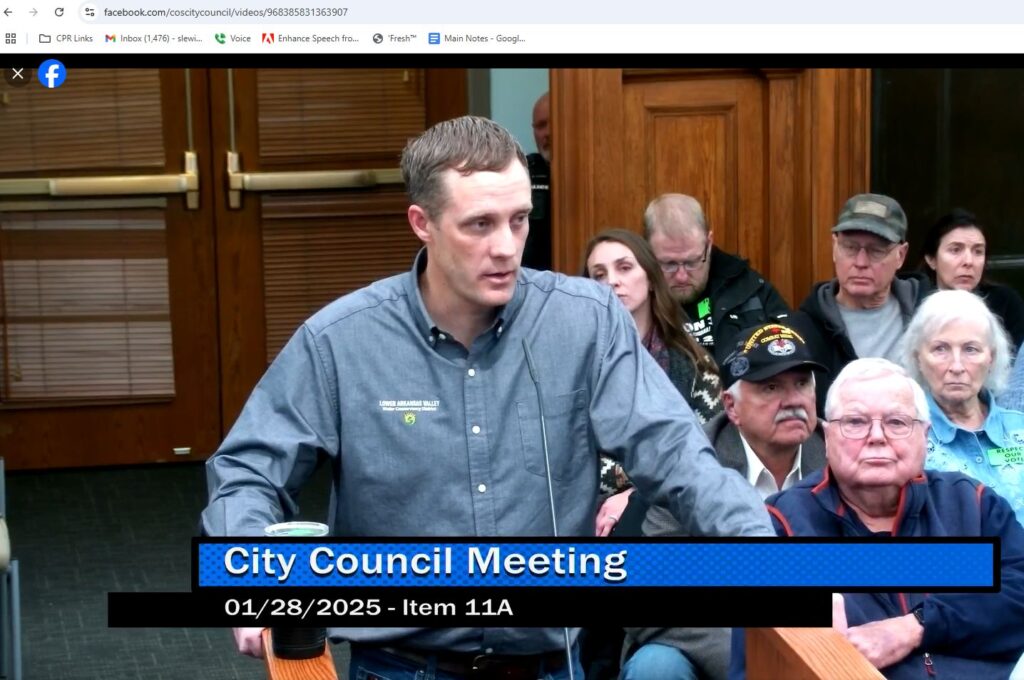
Along with city residents concerned about public safety issues, traffic and water resources, quite a bit of opposition came from outside the city. That includes El Paso County residents who live near the annexation, and also farmers and ranchers from along the Arkansas River Valley. They’ve said in the past that this kind of development will take water from rural areas and move it to the city, putting untenable strain on agriculture and the communities that depend on it.
Leinweber said most of the water in the Arkansas River is used downstream for agriculture and ag producers use quite a bit of flood irrigation, which he called old technology, inferring that is an inefficient use of water. “They don't have any pressure to use it wisely,” he said, a claim that farmers would likely refute.
This controversy shows the tension inherent in a growing city like Colorado Springs, according to Henjum.
“I think a citizen's initiated referendum is the people asking some key questions,” Henjum said. “How do we grow? How do we stay vibrant and meet the needs of the people while recognizing the limits of our environment? What about farming and ranching and how is this all connected?”
But she said, now the people want a direct say and she wants to let them have it.
“Let's wrestle together with the challenge,” she said. “How do we stay economically vibrant and healthy as a city?”
The all-mail special election is set for June 17. About 330,000 ballot packets will be mailed to registered voters in the city of Colorado Springs. Uniformed And Overseas Citizens Absentee ballots will go out on May 2. Domestic ballots will be mailed on May 23 and will need to be returned by 7 p.m. on Election Day.
Editor's Note: This story has been updated to include a missing quote from Lynette Crow-Iverson and to reflect the correct location of Banning Lewis Ranch.

